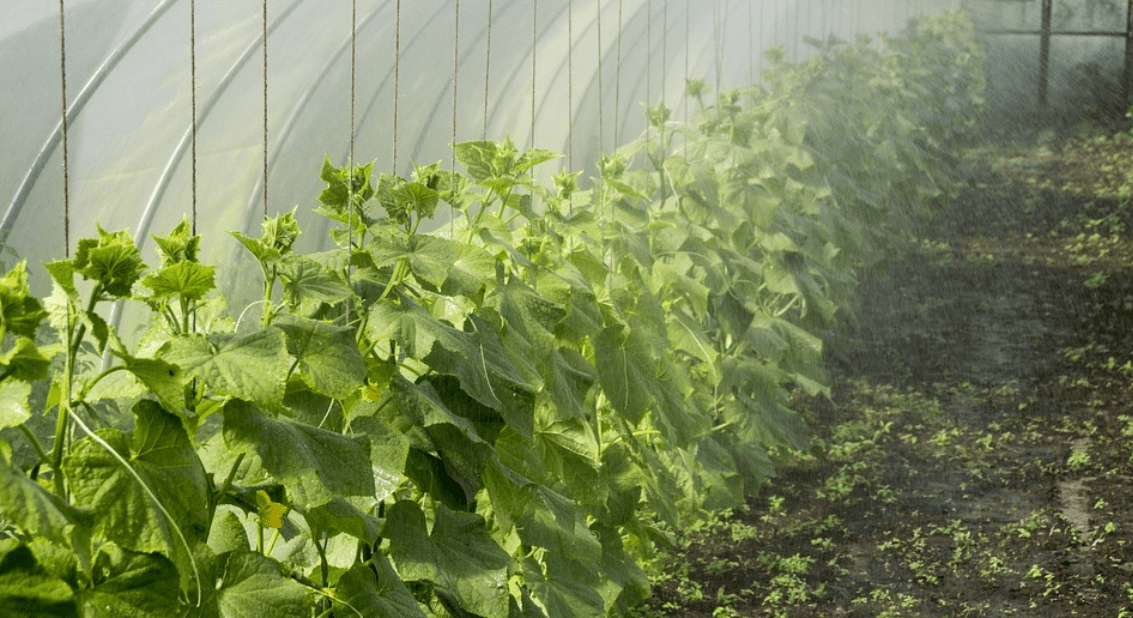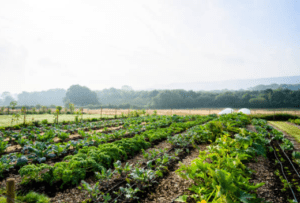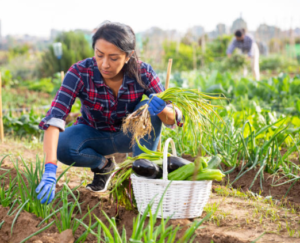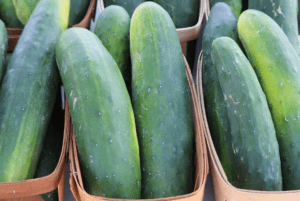Supporting farmers in Tajikistan can be transformative in fighting child poverty.
Tajikistan is situated in central Asia, north of Afghanistan, west of China, south of Kyrgyzstan. It is a rugged, landlocked republic. Approximately ten million people live there.
The biggest employment sector is agriculture. The World Bank estimates that about 48% of the national workforce is employed in farming and its derivative trades. In total, agriculture amounts to approximately a quarter of the country’s Gross Domestic Product (GDP).
Arable land in Tajikistan
Only about 7% of the land is classified as arable. Farming in Tajikistan is not based around large scale corporations. There are many farmers who own or manage a small holding where they produce crops for their own consumption and sell on excess produce into the local community via markets. Their land ranges from an allotment sized strip to two or three acres. So it is mostly small scale and family run.
Technology is not prevalent in Tajikistan’s agricultural industries
It is challenging for small holder farmers to develop their businesses because they have little opportunity to draw on modern technology. Farming is steeped in traditional methods, and labour intensive. Training is rare, which means that local farmers do not have the necessary business acumen, or motivation, to exploit upscaling and updating. This restricts them to a local focus, inhibits their income prospects and limits access to fundamental resources like fertilisers and seeds.
Financial assistance
Farmers in Tajikistan face difficulties in securing loans. They tend to live from season to season, which means that they are especially vulnerable to fluctuations in the weather. Some farmers rely on relatives to help them with planting, general maintenance, and harvesting a crop. Those relatives are likely to be young, sometimes children and either not well paid, or unpaid.
Women farmers in Tajikistan
The World Bank estimates that about one in ten workers emigrate from Tajikistan for employment. They are mostly men, compelled to move abroad because of a lack of job opportunities at home. This means that wives, daughters and sisters tend to be responsible for managing the family small holding. This is a burden in terms of time and energy, given that many women are also mothers and primary caregivers.
 How the World Bank is helping to change lives in Tajikistan
How the World Bank is helping to change lives in Tajikistan
The World Bank tells the story of Shiringul, a woman small holder farmer from the district of Shahrinav. She desperately needed financial support to sheer up her business, enhance its efficiency and protect it against weather fluctuations.
Shiringul’s land
The area of Shiringul’s land amounts to about three acres (that’s approximately the size of three football pitches). Shiringul approached a Tajikistan credit institution for a loan. Through the endorsement of the World Bank not only was Shiringul awarded the loan she applied for, but also an additional grant made through the Agriculture Commercialisation Project (ACP), a financial support facility backed by the World Bank.
The difference that the combined loan and grant made to the small holding
The injection of new finance helped Shiringul transform her small holding. For example, she was able to construct a large green house. This was an innovative addition because a greenhouse essentially extends a growing season. It gives protection from cold weather snaps, frost, etc. It also means that Shiringul can continue to farm some crops in any weather when it might otherwise prove very difficult to cultivate her land. Moreover, a greenhouse can keep pests at bay, or make them easier to control, while allowing a farmer to keep beneficial insects inside the controlled environment. A green house also usually leads to a more bountiful crop. Shiringul can now grow cucumbers for the first time.
 How else do farmers like Shrinigul benefit from additional agricultural technology and infrastructure?
How else do farmers like Shrinigul benefit from additional agricultural technology and infrastructure?
Being able to grow crops for longer ensures that Shiringul can sell produce during colder months and extend her income throughout the year. This is hugely beneficial for the family business and the local community, and not just in terms of providing a more secure food supply. Shiringul now employs seven local people from her village, including three women, to assist her in the green house.
The benefit of this sort of employment opportunity for everyone
If local women from rural communities find it difficult to manage to support their children and families, this type of work is a financial lifeline. It guarantees a way out of poverty and its associated worries. It also brings a sense of achievement and self-esteem, partly arising from workplace camaraderie. There are also perks associated with the job. For example, Shiringul provides a hot meal each working day for her employees.
The ACP particularly aims to support women, young people and members of the disabled community. Securing a loan is one aspect of the role, but equally important is support for formulating business plans. The personal, environmental and economic impact of financial support like this is transformative. Promoting job creation in rural areas helps to keep families out of poverty, ensuring that children and young people enjoy a higher standard of living. Enhancing traditional farming methods leads to more efficient practice and productivity, but it also creates business opportunities to benefit the whole community.
 The success of the ACP scheme
The success of the ACP scheme
Over the last five years loans and matching grants awarded from the ACP scheme have supported rural farming projects across Tajikistan. Nearly 3,000 farmers, about half of whom are women, have been awarded grants and loans totalling $4 million. Moreover, 130 small holder farms have been established as a result of financial intervention. In all $1.8 million has been injected into the Tajikistan economy at a local level to help start up businesses. Of the 130 new businesses supported, 35 were established by women, 90 by young people and the remaining five by disabled people.
How Shiringul is intending to spend her profits
The World Bank quotes Shiringul’s ambition to invest in her children’s future: ‘My dream is to be able to afford to give all my children higher education, especially my daughters.’ Such a heartfelt revelation demonstrates just how significant the ACP’s scheme is for people living in rural Tajikistan. This far sighted financial intervention and support not only empowers local people; it helps to bring rising prosperity to local communities; it naturally fights against poverty, and it is truly aspirational in terms of the potential impact that can be made on families and children in particular.





